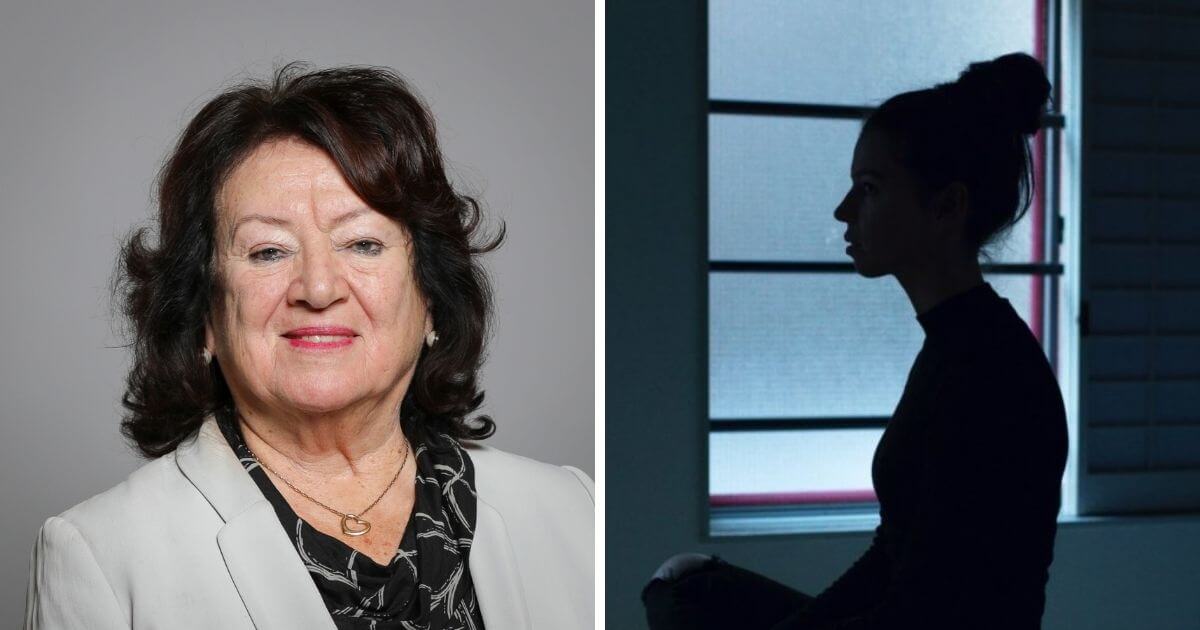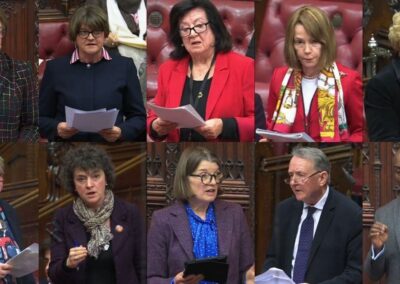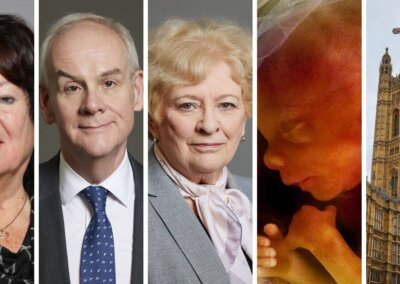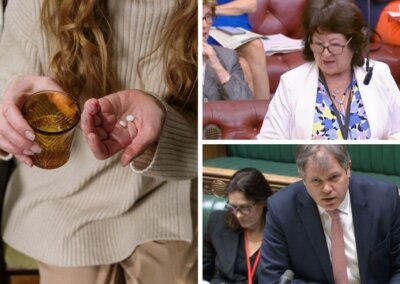Conservative life peer, Baroness Eaton, has tabled an amendment to the Health and Care Bill in the House of Lords that would ensure that under 18s have an in-person consultation with a medical professional before they are able to receive abortion pills.
This comes after the House of Commons voted to permanently remove the requirement to see a medical professional in person before procuring a medical abortion up to a gestation of nine weeks and six days, overturning the Government’s decision to end ‘DIY’ abortion.
In the Commons debate, a number of MPs stated concern about this measure not providing enough safeguards for children. Baroness Eaton’s amendment seeks to address this issue.
Writing about the temporary ‘DIY’ abortion measure, which was introduced at the start of the COVID-19 pandemic in March 2020, she described it as having “jeopardised” children’s welfare.
“The removal of an in-person consultation was no small detail. Virtual consultations can enable unseen and unheard coercive adults to influence the patient. They also allow pills to be obtained under false pretences. Without face-to-face consultations, requests for abortion pills can be entirely fraudulent, posing particular risks in terms of female exploitation”.
Highlighting why she feels Peers should support the amendment, regardless of an individual’s position on abortion, she stated: “Whatever one’s views on abortion, few would argue that what can be a traumatic event, both physically and emotionally, should be undertaken in one’s home without having been seen in person by a medical practitioner at any point. And we are not just talking about women — those deemed old enough to make informed decisions. The pills by post policy also applies to girls under the age of 18, who are less likely to understand the risks involved and who are more vulnerable to the effects of trauma”.
Savannah’s story
Baroness Eaton went on to recount the tragic story of Savannah, a 16-year-old girl who took abortion pills after a BPAS phone consultation incorrectly concluded she was less than 8 weeks pregnant.
“The clinic she had spoken to calculated she was less than eight weeks pregnant, but they neither examined nor scanned her, and after taking the pills she was taken to hospital suffering “really bad” pain”, she wrote.
“She was actually between 20 and 21 weeks pregnant, and she gave birth to a baby with a heartbeat — indeed she said her “boyfriend could see feet.” Savannah said she had been left traumatised. “If they scanned me and I knew that I was that far gone, then I would have had him,” she said. It is hard to comprehend the trauma of an experience like this for such a young woman”.
Leading experts in the field of children’s safeguarding support this amendment
Baroness Eaton’s amendment has received an endorsement from the National Network of Designated Healthcare Professionals for Children (NNDHP), an NHS body comprised of doctors and nurses who are leading experts in the field of children’s safeguarding.
The NNDHP released a statement saying: “all children and young people (those under 18 or those in care under 25) must be seen face to face, and the age of other applicants must be confirmed. The purpose of this position is to clinically assess the mid-trimester risk and prevent coercion and exploitation”.
In this report they expressed concern that phone and video consultations “enable unseen and unheard coercive adults to influence the patient” and “enable pills to be obtained under false pretences”.
The amendment would also seem to answer concerns made by the Royal College of Paediatrics and Child Health, who said, “change in the legislation through the Health and Care Bill leaves a glaring gap — children and young people”.
In reference to the specific challenges telemedicine presents for children and young people, the RCPCH went on to state, “it is especially important to consider their safeguarding and holistic wellbeing, as well as their physical health needs”.
Spokesperson for Right To Life UK, Catherine Robinson, said: “The safety and welfare of children across the country is of paramount importance and Baroness Eaton is right to acknowledge the significant gap ‘DIY’ abortion presents in this area”.
“This amendment is about ensuring that girls across England, who are under the age of 18 and are more vulnerable to abuse, coercion and trauma, are not denied this basic level of safeguarding. This is something that all Peers, regardless of their position on abortion, should be supporting”.
“Stories like Savannah’s should not be happening. By voting in favour of this amendment, peers can ensure that stories like this are far less frequent”.












